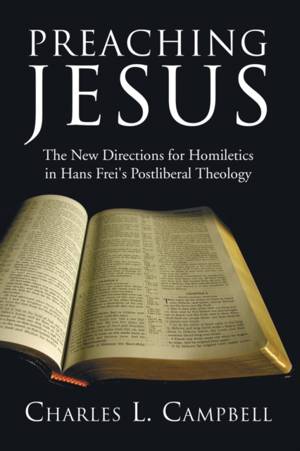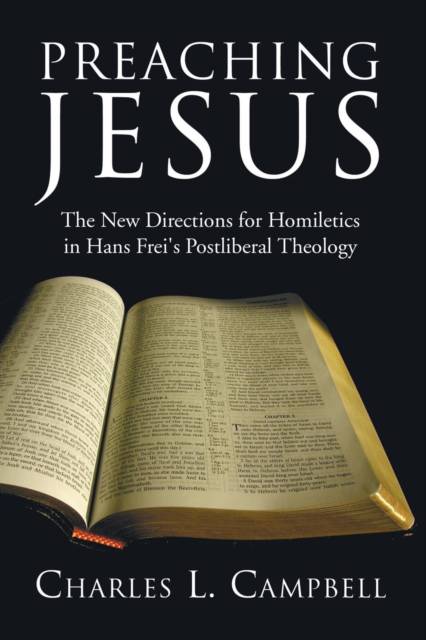
- Retrait gratuit dans votre magasin Club
- 7.000.000 titres dans notre catalogue
- Payer en toute sécurité
- Toujours un magasin près de chez vous
- Retrait gratuit dans votre magasin Club
- 7.000.0000 titres dans notre catalogue
- Payer en toute sécurité
- Toujours un magasin près de chez vous
Description
The post liberal, cultural-linguistic theology of the Yale School has been one of the most important theological developments in the United States during the latter twentieth century. In this unique book, which combines theological analysis and homiletical reflection, Charles Campbell examines post liberal theology as it is embodied in the work of Hans Frei and develops the implications of this theological position for the theory and practice of preaching. Arguing that the trouble with homiletics today is fundamentally theological, Campbell offers Frei's theological position as a means for enriching the Christian pulpit and renewing the church. Charles Campbell has given us a helpful book on preaching and the best study available of Hans Frei's theology. This is a book that anyone interested in Frei's thought needs to read, and it will lead many preachers who begin it with no interest in Frei to discover how much his way thinking about theology can help them in their task. --William C. Placher, Wabash College This book maps out an important intersection between the theology of the so-called Yale School and the life of mainstream Protestant churches. Campbell's book offers both an accessible guide to Hans Frei's theology and an approach to narrative preaching that has promise in addressing the challenge of building Christian community in contemporary Protestantism. --Amy Plantinga Pauw, Louisville Presbyterian Theological Seminary Finally! A book that moves us beyond 'storytelling' in preaching. In Preaching Jesus Campbell takes the church's story seriously and discloses the revolutionary potential of preaching in a post liberal age. This is the most honest and helpful appraisal of narrative preaching that I know of. We have been waiting for this book and Campbell's exciting new proposals for many years. --Richard Lischer, Duke Divinity School In a crowded supermarket of junk food and homiletic 'lite' fare, Charles Campbell has brought us a nourishing gift--the solid meat of profound theological reflection on the task of preaching. . . . A rare and welcome book. --Thomas G. Long, Brandy Professor of Preaching at Candler School of Theology Charles L. Campbell is Peter Marshall Professor of Homiletics, Columbia Theological Seminary.
Spécifications
Parties prenantes
- Auteur(s) :
- Editeur:
Contenu
- Nombre de pages :
- 304
- Langue:
- Anglais
Caractéristiques
- EAN:
- 9781597528849
- Date de parution :
- 01-09-06
- Format:
- Livre broché
- Format numérique:
- Trade paperback (VS)
- Dimensions :
- 152 mm x 228 mm
- Poids :
- 421 g

Les avis
Nous publions uniquement les avis qui respectent les conditions requises. Consultez nos conditions pour les avis.






